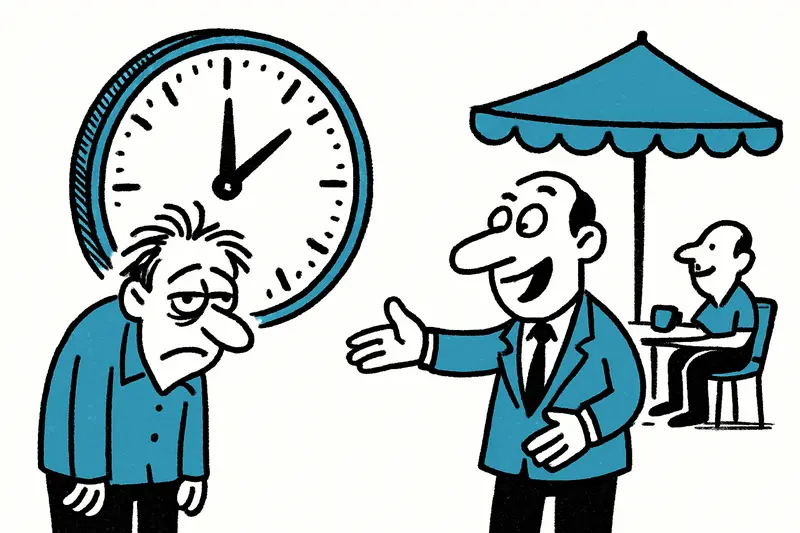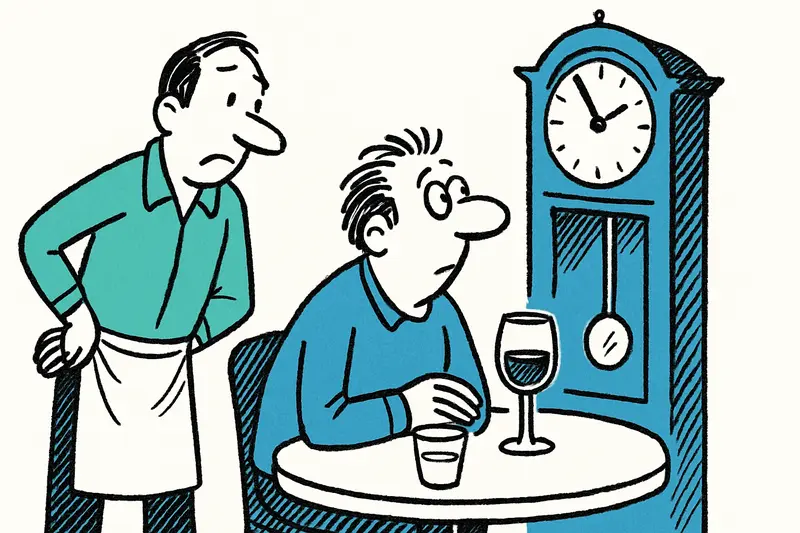The Balearic Islands are pushing to permanently set the clock to daylight saving time. Especially gastronomy, tourism, and many locals see benefits — not everyone is convinced.
Why the Balearic Islands want to stick to daylight saving time
\nIn Mallorca, Menorca, Ibiza and Formentera you often hear the same argument: more daylight in the evenings is good for the island economy. The regional parliament of the Balearic Islands had already taken a clear position years ago and advocates for a permanent daylight saving time. In Palma, where the town hall clock on Passeig del Born still greets visitors daily, the topic quickly comes up — especially when in summer the terraces stay busy late.
\nWhat the local economy says
\nRestaurant owners in La Llotja and at Playa de Palma report clear differences: when it's still light at 8:30 pm, guests stay longer, order another glass of wine or a dessert. "When the sun goes down earlier, sales are noticeably lower," says a tapas bar operator who prefers to remain anonymous. Beach kiosks and organizers of boat tours also benefit from more evening light.
\nFor the tourism sector, the length of the evening is not a luxury, but a predictable revenue window. Hotels estimate that events, pool usage, and evening offerings run more easily with more light. A local tour operator who often brings groups to the harbour around 7 pm says that evening activities in winter suffer from the earlier darkness.
\nThe other side: morning hours and biology
\nHowever there are concerns: permanent daylight saving time means darker morning hours in the winter months. Commuters, schoolchildren, and farmers have to leave earlier at dawn — which is not everyone's cup of tea. Doctors also note potential adjustment periods for sleep rhythms. Some parents report that children seem sleepier in the morning when the sun rises later.
\nPolitically, the situation is a bit more complicated. Nationally, there has recently been discussion about scrapping time changes altogether. Whether Spain will permanently choose winter time or summer time in the future remains open. Until a comprehensive rule is in place, the Balearics are trying to make their local perspective clear.
\nA view from the islands: practical and a little sentimental
\nThose who stroll along the Paseo Marítimo in the evening and look at the boats in the harbor quickly understand why many here favor long evenings. It is not just about the economy, but about a way of life: one last café con leche at the bar, a chat with the neighbor on the promenade, a round at an open-air cinema under the stars. At the same time, there is the sober argument: restaurants and bars are workplaces. Shorter evenings cost money.
\nFact remains: The decision is not only up to the islands. Yet the Balearics have made their stance clear — and many here hope that the clock will no longer be changed twice a year in the future. Whether that happens now depends on Madrid and on a Europe-wide debate that is not yet concluded.
Similar News
Nazi graffiti on Picornell bust in Palma: memory desecrated
In El Molinar, the bust of anti-fascist activist Aurora Picornell was smeared with swastikas and the number 88. The city...

German Tourist Robbed at Ballermann – Phone Tracked Down in Romania
After a theft on Playa de Palma, a young German man managed to locate his smartphone via a tracking service—thousands of...

Sánchez to Abolish Daylight Saving Time — Mallorca Would Live Differently
The biannual clock change could end in 2026. For Palma and the coastal towns, daily life would feel noticeably different...

Balearic Islands push for permanent daylight saving time – what it means for Mallorca
The Balearic regional parliament wants permanent daylight saving time — citing concerns about sunset times, gastronomy, ...

Spain and Algeria Reactivate Repatriation Agreement – Implications for the Balearic Islands
After talks in Algiers, Madrid and Algiers plan to revive a repatriation agreement that has been little used for years. ...
More to explore
Discover more interesting content

Experience Mallorca's Best Beaches and Coves with SUP and Snorkeling

Spanish Cooking Workshop in Mallorca

Valldemossa and Valley of Sóller Tour in Mallorca

FUN Quad Mallorca

Shared 4-hour catamaran trip with tapas

